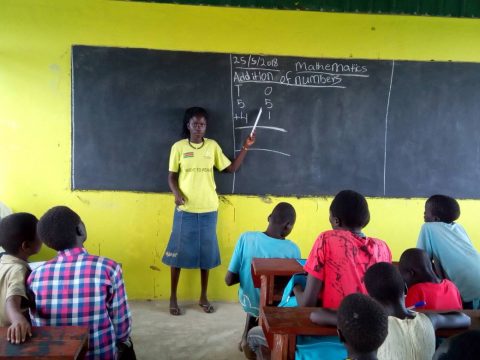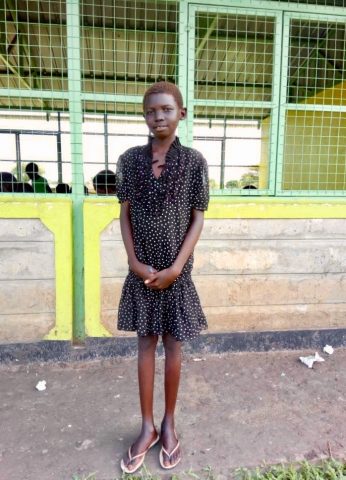New school structures in South Sudan attract children to school after years of conflict – “Before, they were learning under trees”
Finn Church Aid (FCA) handed over twelve classrooms to the government authorities in the Greater Pibor area in late May. FCA ensures quality education through training teachers and involving parents.

Stella Boyoi teaches mathematics to children in the newly built classroom. Photo: Kajasuk Jackson
Finn Church Aid and local authorities completed a mayor achievement in the education of children in the Greater Pibor Area with the handover of five classroom blocks, consisting of twelve classrooms.
The project’s aim was to improve access to quality education in most remote communities in Pibor and Gumuruk, locations that were marginalised and neglected for long due to conflict.
In addition to the classrooms, FCA trained 88 members in Parent-Teacher Associations to support school functions, 10 county education staff in management and 60 volunteer teachers in pedagogy and psychosocial support. Thanks to public awareness campaigns, the project reached 4 106 children.
Stella Boyoi is one of the newly recruited volunteer teachers in Langachod Primary School. According to Boyoi, there were no good school structures in Pibor in the past.
Parents are now encouraged to send their children back to school after a long period of instability.
“Before, children were learning under trees and ran home whenever it started raining”, she says.
Safe and inclusive education for girls and boys
Boyoi believes that the brand new classrooms themselves, with benches and desks, attract children to participate in lessons and help them stay attentive throughout the school days. FCA has provided exercise books, chalks and chalkboards, as well as incentives for the volunteer teachers to ensure quality education.
Parent-Teacher Associations play an important part in managing the schools. The members received agricultural tools, seeds and trainings to generate income and thus support the schools financially.

Mary Paul, 11, says she feels safe in the new school block in Langachod. Photo: Kajasuk Jackson
Boyoi hopes that families also send their daughters to school. In the local culture, it has been common that parents expect girls to do domestic work and marry at an early age.
Attitudes are slowly changing with improved access to education and the opportunities it brings for the future of the children.
“I decided to become a teacher because I want to change our community through education. As a woman, I also want to be a role model for all the young girls”, Boyoi says.
11-year-old Mary Paul is the second youngest of four sisters. Her eldest sister did not go to school, but Mary now has an opportunity to participate because the new structures are close to her home.
“I joined school because it is now near to my home, and I don’t have to fear to come to school alone”, she says.
Text: Kajasuk Jackson, Erik Nyström
Read more about Finn Church Aid’s work in South Sudan here.